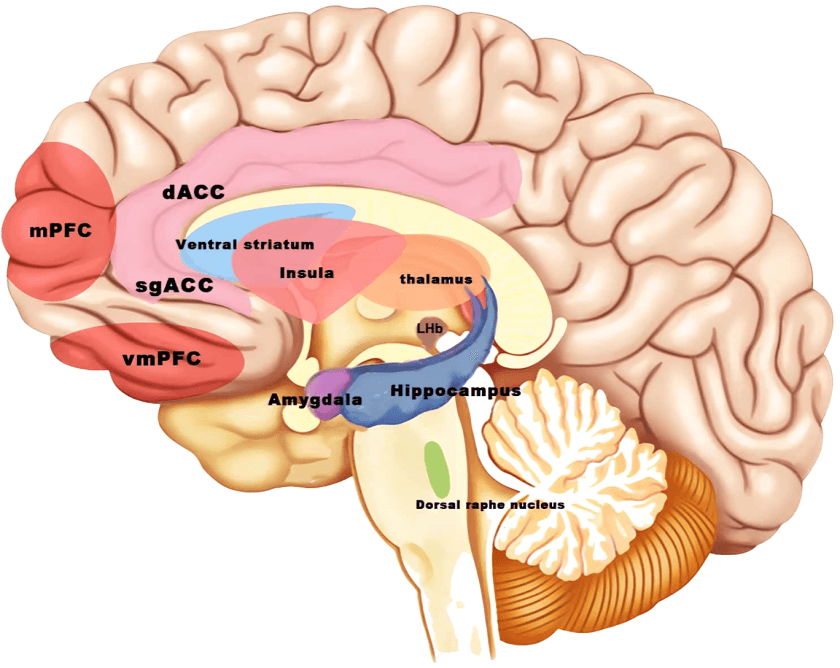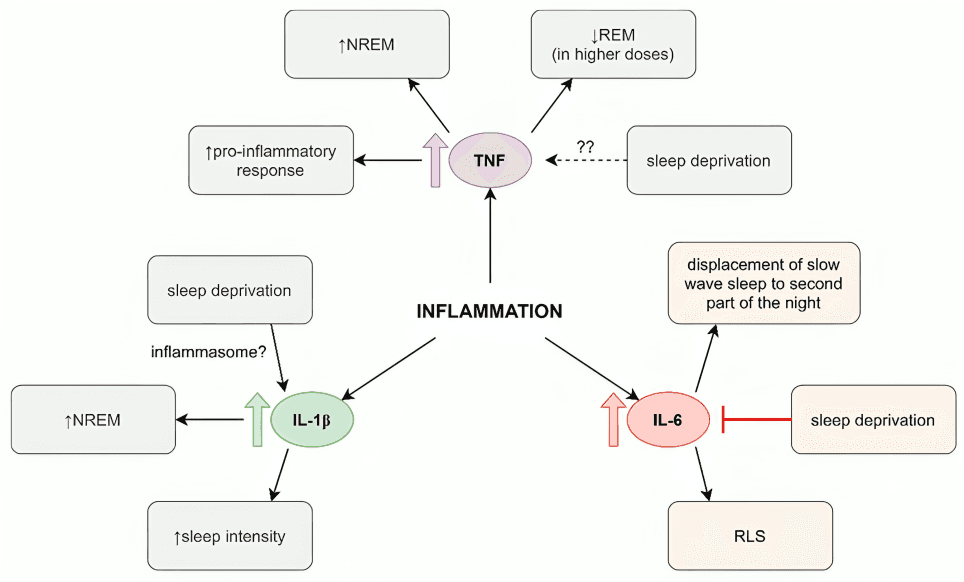
“
Inflammation and mental health are intricately connected, with growing evidence suggesting that chronic inflammation plays a significant role in the development and progression of anxiety and depression. Understanding this link is crucial for developing effective treatments and improving mental well-being.1
1
”
Descartes viewed mind and body as separate, but science now shows inflammation in the body can deeply influence emotions, bridging the gap between physical illness and mental distress. 1
Cytokines released during inflammation affect the brain’s chemistry, disrupting how serotonin and dopamine work, which can lead to prolonged sadness, hopelessness, and emotional imbalance. 2
People with higher levels of inflammation markers often experience deeper episodes of anxiety and depression, revealing a strong biological link between immune activity and mental health symptoms. 3

Chronic inflammation damages nerve cells over time, especially in brain regions like the hippocampus, which controls mood, memory, and emotional regulation.
Inflammation can alter the balance of gut bacteria, weakening the gut-brain connection and triggering emotional problems like anxiety, irritability, and negative thoughts. 4
Long-term stress activates the body’s stress hormones and leads to ongoing inflammation, which keeps anxiety and depressive moods alive, even without an obvious cause. 5
Some antidepressants are believed to work partly because they reduce inflammation in the brain, not just because they affect serotonin levels. 6
Increased inflammation can worsen anxiety by intensifying the fight-or-flight response, making people overly reactive to even minor stress or uncertainty. 7
Inflammation slows brain cell growth and repair, contributing to brain fog, loss of interest in activities, and emotional exhaustion often found in depression. 8

Inflammatory molecules called cytokines can disrupt sleep patterns, and poor sleep then feeds back into more inflammation, creating a repeating cycle of unrest and low mood.
People with autoimmune conditions often report mood disorders because their immune systems are chronically inflamed, highlighting how physical disease can cause psychological distress. 9
Some foods, especially processed ones and sugary snacks, increase inflammation and may worsen symptoms of anxiety and depression when consumed frequently. 10
Physical activity lowers inflammation in the body and boosts brain chemicals that improve mood, making exercise a valuable tool for emotional stability. 11
Meditation and deep breathing techniques help lower stress-related inflammation, which can reduce emotional reactivity and feelings of nervousness or sadness. 12
People exposed to long-term emotional trauma in childhood may have heightened inflammation as adults, which increases vulnerability to depression and anxiety. 13
High inflammation can shrink the size of key brain areas responsible for decision-making, focus, and emotional control, leading to impulsive behavior and rumination. 14

Some people with treatment-resistant depression show elevated inflammation, suggesting that reducing immune overactivity may help them respond better to medications or therapy.
Air pollution can cause inflammation in the brain, making people in polluted cities more prone to mental health conditions than those living in cleaner environments. 15
Social isolation is connected with increased inflammation and also contributes to anxiety and depression, showing how relationships can influence both immune and emotional health. 16
Psychiatrist Dr. Elena Brooks emphasizes treating inflammation alongside therapy for anxiety and depression, stating that lasting mental recovery often requires healing both brain chemistry and the immune system. 17


